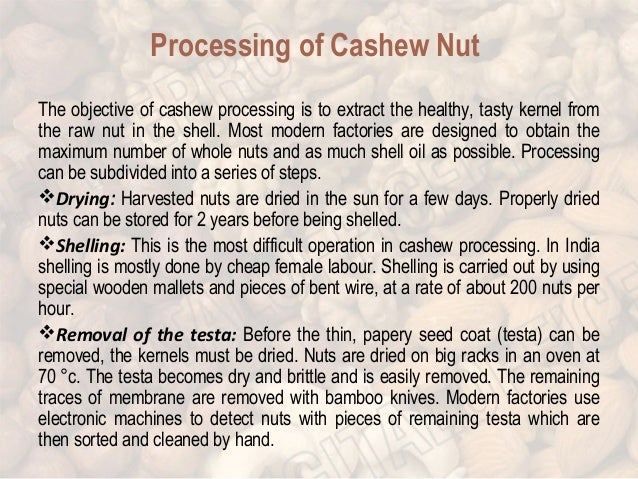

Assist in lowering blood pressureĬashews are high in unsaturated fats and minerals such as magnesium, potassium, and L-arginine. It also has anti-inflammatory properties, which help to reduce internal inflammation, which increases the risk of developing heart disease. It contains phytosterols, phenolic compounds, and oleic acid, which promotes heart health and strengthens blood vessels.Ĭashew nuts aid in the reduction of bad cholesterol (LDL) and the increase of good cholesterol (HDL) in the body. When consumed in moderation, it can be a healthy addition to your diet.Ĭashew nuts are high in essential fatty acids, potassium, and antioxidants, all of which are good for your heart. Calcium, copper, potassium, magnesium, zinc, and folate are all minerals.Ĭashew nuts are high in healthy fats, proteins, essential vitamins, and minerals.Vitamins E, K, and K are all antioxidants.

That is why cashew nuts are a big no-no for diet-conscious people.Ĭashews are high in – additional calories.

However, due to the high-calorie content, it cannot be consumed on a daily basis. Here’s what you should know about all the ways each type of nut can help your health.The cashew nut is one of the most nutritious nuts available. That means the bigger variety you include in your diet, the better - as long as whatever you choose isn't coated in chocolate, sugar, or salt (which can cancel out some of the health perks), notes Mayo Clinic. So, are all nuts created equal? While all nuts contain fiber and protein, each variety also has its own unique health brags. A serving of nuts is about 1 ounce (oz) or a small handful, according to the U.S. Just remember to mind your portions, as nuts are still a calorie-dense food, per Mayo Clinic. Another analysis of nearly 120,000 individuals, partially funded by the International Tree Nut Council Nutrition Research and Education Foundation, found that people who reported eating nuts more frequently lived longer than those who ate nuts less often. Other research, on 15,467 older women from the Nurses’ Health Study, found that higher consumption of nuts during the six years of the study was linked to better overall cognition for the women.

In one past review, researchers found that people who reported eating the most nuts reduced their risk of coronary heart disease by approximately 35 percent compared with individuals who ate fewer nuts. Nuts have been linked to lots of big health benefits. Along with “good” fats that may lower your LDL or "bad" cholesterol and triglyceride levels, most nuts also contain heart-healthy omega-3 fatty acids and vitamin E, which may help prevent the buildup of plaque in the arteries, notes Mayo Clinic. “A small handful can pack your diet with filling protein, fiber, unsaturated fats, and important vitamins and minerals,” says Joy Bauer, RDN, the author of several books and a nutrition and health expert for the Today show.
#Cashew nut advantages and disadvantages full
Plus, in addition to protein and other nutrients, all nuts contain cholesterol-lowering fiber, which makes you feel full longer and helps you eat less, according to Mayo Clinic. First of all, they’re easy to pack if you’re on the go, or to keep on hand in an office drawer or pantry. There are several reasons you’ll find nuts on nearly every smart-snacking list.


 0 kommentar(er)
0 kommentar(er)
